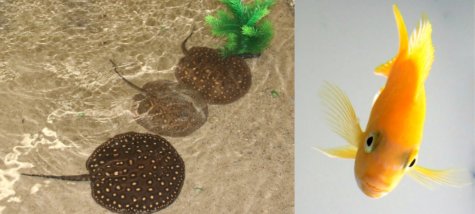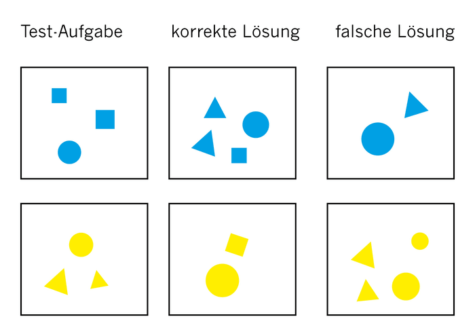BONN, Germany — Apparently, one plus one equals tu-na. A new study reveals that fish are capable of doing simple math problems, just like people!
Researchers in Germany have found that cichlids and stingrays are both able to recognize and calculate small quantities without really having to count them — just like a person looking at their change on a table.
“We trained the animals to perform simple additions and subtractions,” explains Dr. Vera Schluessel from the Institute of Zoology at the University of Bonn in a release. “In doing so, they had to increase or decrease an initial value by one.”
Although some call fish the “dunces of the animal kingdom” because of their memory span — which can last just three seconds — the new study revealed their capacity for complex sums, adding and subtracting from one to five.
Their numerical skills were on a par with other invertebrate and vertebrate species and experts are beginning to suspect they are as intelligent as birds and mammals.
“Successful fish showed abilities far above chance level, specifically in the stingrays. Again, this raises the question of what abilities fish may be capable of if being asked the ‘right’ question,” the researchers write in the journal Scientific Reports.

Color-coded math problems
In experiments, the team trained the animals to recognize the colors blue and yellow as symbols for adding or subtracting by a factor of one. Eight of the fish were freshwater stingrays and the others were a species of cichlid known as zebra mbuna. During the experiments, blue meant “add one” and yellow meant “subtract one.”
Study authors showed each fish cards with shapes displaying either color in their tank and then presented them with two gates. They contained signs with different numbers of shapes — one of which was the correct mathematical answer. For example, if a fish saw three blue shapes, they would add one to three and swim through a gate displaying four shapes — gaining a food reward for answering correctly.
Six zebra mbuna and three stingrays learned to consistently associate blue with addition and yellow with subtraction. On average, it took the zebra mbuna 28 sessions to figure out the math problems and 68 sessions for the stingrays. In general, they performed well although addition was easier to learn.
Overall, success among the zebra mbuna varied, with the fish correctly answering 296 out of 381 (78%) tests. Meanwhile, stingrays answered 169 out of 180 (94%). For the subtraction test, zebra mbuna answered 264 out of 381 (69%) correctly, while stingrays got 161 out of 180 (89%) right.
“Overall, it seems likely that fish, independent of whether there is a direct biological need or not, can solve complex numerical tasks,” the researchers write.

(CREDIT: Esther Schmidt)
So, what do fish need math for anyway?
The team notes their findings were surprising, since math skills don’t have an obvious benefit for either species.
“Both are opportunistic feeders not hunters, that show no mating- or reproduction related behaviors relying on numbers (e.g. counting stripes or eggs),” study authors continue. “Neither species nests nor is there any information available about preferences for particular sized social groups.”
However, there may be important ecological advantages for fish who are good at math that scientists haven’t discovered yet.
“Arithmetic abilities could be one of many cognitive byproducts that may be useful to enhance individual recognition (e.g. by using phenotypic characteristics) or help detect changing environmental or socials conditions,” the team explains. “As both species live in complex habitats (rocky lake and coral reef environments), a certain degree of behavioral flexibility is essential for survival.”
“To possess an enhanced cognitive skill might be advantageous under some environmental circumstances but not possessing it might not necessarily present a disadvantage either.”
South West News Service writer Mark Waghorn contributed to this report.

